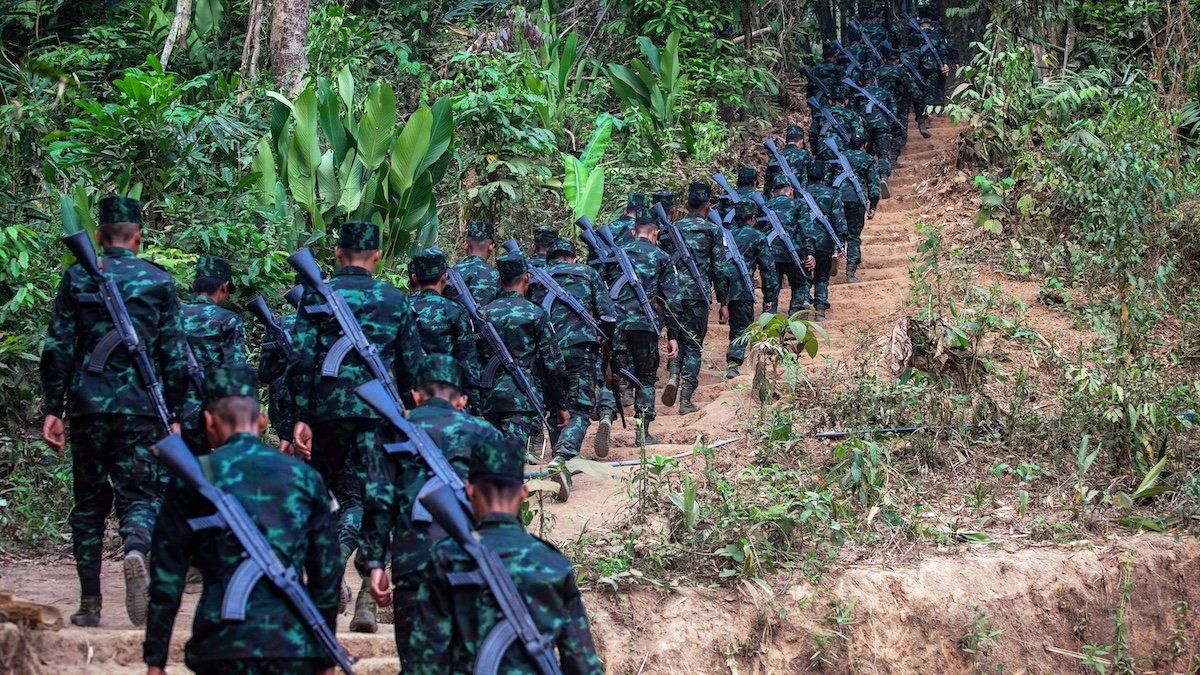An alliance of fighters loyal to the former democratic government and ethnic minority militias has opened the door to talks with the junta in Myanmar over building a civilian-led federal government. The plan comes just ahead of the three-year anniversary of the coup against Aung San Suu Kyi and her brief democratic experiment, and follows three months of successful rebel offensives to take key border crossings to India, China, and Thailand.
What’s the plan? The so-called National Unity Government and its partners outlined six principles they hold to be nonnegotiable. In brief, the military must leave politics and subordinate itself to civilian control, a new constitution representing all stakeholders must be written, and a process of transitional justice must be set up to reconcile the grieving nation.
If the junta agrees, the NUG says it will negotiate “with the responsible leadership of the Myanmar military to terminate military rule and for peaceful transition of power.” If not, it will keep pressing the junta politically and militarily.
Will it work? The military didn’t immediately jump at the opportunity for talks, instead extending an official state of emergency by six months and delaying promised elections again. It’s not unexpected: Even if they struggle to control the border regions now, the feared Tatmadaw forces outgun and outnumber the NUG and any individual ethnic militia.
What’s more, militias from the Three Brotherhood Alliance that did the lion’s share of the fighting to seize those border regions didn’t sign on to NUG’s statement. If the best rebel fighters aren’t aligned on the peace plan, the junta may feel little compulsion to consider it seriously.
That said, officials in foreign capitals have worried that a collapse of the military regime could lead to the collapse of the state and exacerbate violence. Laying out a peace plan publicly – in English as well as Burmese – could be aimed as much at enticing political support overseas as domestically.



















